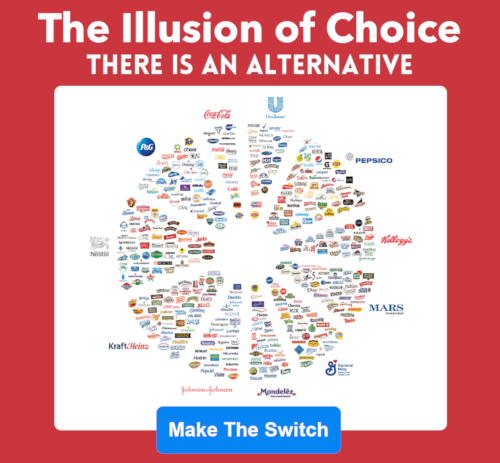There’s more mission creep at the Consumer Financial Protection Bureau (CFPB) under Director Rohit Chopra. CFPB is considering a rule that requires certain non-bank businesses to enter their names into a public registry if they’ve violated any consumer protection laws. The agency wants these companies to also give yearly reports “regarding compliance with each underlying order” while supplying a roadmap to compliance. This amounts to a large scarlet “A” on any business that runs afoul of a financial rule that they may not know exists. Much like the Puritans in Nathaniel Hawthorne’s classic, this restrictive legalism threatens to harm smaller, startup businesses.
“[E]ntities subject to such public orders relating to the offering or provision of consumer financial products and services may pose ongoing risks to consumers in the markets for those products and services,” writes CFPB in their attempted justification of the rules claiming that they’re just following guidelines set up by Congress. “A comprehensive collection of such public orders would shed light on how laws are being enforced across consumer protection laws, jurisdictions, and markets, and help identify trends and potential gaps in enforcement.”
Not everyone is convinced that CFPB’s proposed rule is the best policy. Groups including National Taxpayers Union (NTU), R Street Institute, Taxpayers Protection Alliance, and Citizens Against Government Waste sent a letter to CFPB last month raising major concerns. They’re particularly uneasy that this proposal hits “new and emerging financial institutions” that may eventually provide better services than traditional banks. The groups also fear this could scare away potential customers or investors if they know that CFPB bureaucrats are waiting to strike at a moment’s notice.
Other issues involve the fact that this idea centralizes more power within the federal government. “[I]t is likely that this rule could be disruptive to the state and local oversight process,” write coalition representatives in their missive noting that it’s less likely that states and cities reach settlements with businesses if they know that a national registry is coming. “This could lead to uncertainty for the business community as they work with their state and local regulators on agreements.” The Mortgage Bankers Association (MBA) pointed out that settlements aren’t necessarily an admission of liability but done to avoid any court fight with regulators or because “it is often less expensive…particularly for technical violations.” One must wonder whether it’s worth punishing technical violators who legitimately believed they were following regulations.
The cost of compliance is another concern. The NTU-led coalition’s letter fretted that the rules place an undue burden on small businesses and hurt their bottom lines. “Organizations will need to hire extensive compliance teams as well as provide document retention and storage in order to remain in compliance with the rule.” What kind of compliance team isn’t known because CFPB’s rule proposal claims that doesn’t put in place “minimum procedures or otherwise specify the steps the attesting executive must take in order to review and oversee the supervised registered entity’s activities.” It also claims that no “minimum level of compliance management or expectation” is within the rules before announcing a requirement that “supervised registered entities…identify a central point of contact and responsibility regarding an entity’s efforts to comply with a covered order.” This seems confusing and unclear for small businesses and their attorneys.
Businesses may also face higher costs from insurance premiums if, as MBA pointed out, unscrupulous, attention whore attorneys might file lawsuit after lawsuit against certain businesses. There’s no reason to further empower lawyers looking to make a quick buck.
Even attorney groups fear the proposed CFPB rule might negatively affect them. The National Creditors Bar Association wrote that it could interfere with attorney-client privilege because it might appear in a proposed registry. NCBA added that various states have different rules and regulations and that another layer of bureaucracy creates more bureaucracy and confusion.
CFPB seems hellbent on creating more and more work for businesses in the finance industry. The “why” supposedly offered by the Bureau doesn’t make sense. The agency, which isn’t under congressional oversight, needs to explain why it believes this type of rule is needed or why it might benefit consumers. This appears to be an alleged solution in search of a problem that does nothing but increase governmental power. Fans of small government should beware—as should consumers who want more choices and lower costs in the financial services space.
Taylor Millard is a freelance journalist and can be found on Twitter @taylormillard. His work has appeared in The Spectator, Washington Examiner magazine, The Daily Beast, InsideSources, and HotAir.
The views and opinions expressed in this commentary are those of the author and do not reflect the official position of the Daily Caller News Foundation.
All content created by the Daily Caller News Foundation, an independent and nonpartisan newswire service, is available without charge to any legitimate news publisher that can provide a large audience. All republished articles must include our logo, our reporter’s byline and their DCNF affiliation. For any questions about our guidelines or partnering with us, please contact licensing@dailycallernewsfoundation.org.
All content created by the Daily Caller News Foundation, an independent and nonpartisan newswire service, is available without charge to any legitimate news publisher that can provide a large audience. All republished articles must include our logo, our reporter’s byline and their DCNF affiliation. For any questions about our guidelines or partnering with us, please contact licensing@dailycallernewsfoundation.org.
JOIN US @NewRightNetwork on our Telegram, Twitter, Facebook Page and Groups, and other social media for instant news updates!
New Right Network depends on your support as a patriot-ran American news network. Donate now


